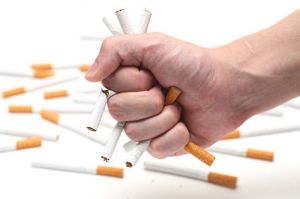In her blog entry for PsychCentral.com, Donna M. White discussed some of the notions people have on drug addiction and uncovered the real truth about substance abuse.

Image source: psychcentral.com
Whether we like to admit it or not, we all have our own ideas of what an addict looks like. We have our beliefs about why they engage in the behaviors they engage in and why they just won’t quit.
This is also true for addicts themselves. Often it is difficult to overcome addiction because of the perception of what addiction really is.
But the truth of addiction is sometimes hidden behind common, long-standing myths. So here are some of those common myths — and the real truth — about addicts and addiction.
- Addicts can stop if they really want to.Research shows that long-term substance use alters brain chemistry. These changes can cause intense cravings, impulse control issues, and the compulsion to continue to use. Due to these chemical changes it is very difficult for a true addict to quit solely by willpower and determination.
- Addicts can’t be productive members of society.Many often believe that addicts are unemployed, involved in criminal behaviors, homeless, and have a host of interpersonal issues. While this is sometimes true, there are many addicts that continue to “function” in society by remaining employed, providing for their families, being involved in family activities, and not appearing to be an addict.
- Addiction only affects those who are weak, uneducated, or have low morals.Addiction does not discriminate. Addiction affects the lives of people of all ages, ethnicities, cultures, religions, communities, and socioeconomic statuses. Addiction is not a result of low morals. Often addicts behave in ways that violate their personal beliefs, values, and morals. Addiction is an equal opportunity disease.
- Addiction is a disease, so there is nothing you can do about it.If your doctor told you that you had cancer, would you not begin necessary treatment and making the necessary lifestyle changes? Addiction isn’t much different if you believe in the research that suggests that addiction is a disease of the brain. Just because you have the disease of addiction doesn’t mean you throw in the towel. Research shows that the brain damage resulting from substance use can sometimes be reversed through abstinence, therapy, and other forms of treatment.
- Addicts who relapse are hopeless.Addiction is a chronic disorder. Just as a pathological liar has to work continuously on honesty, an addict has to commit to working on not using. Addicts are most prone to relapse in the first few months of being clean and sober. A relapse does not constitute failure. Processing the events surrounding a relapse can be healthy and aid in preventing future relapses.
- Alcohol and drug use cause addiction.There are several factors that contribute to a person becoming addicted to substances. While alcohol and drugs may trigger a substance use problem for some, there are those who can drink alcohol and experiment with drug use and never become addicted. Factors that contribute include environment, emotional health, mental health, and genetic predisposition.
- Addicts should be excused from negative behaviors.Some may believe since addiction is a disease addicts should not be held accountable for their actions. This is not true. An addict may not be responsible for their disease, but they are responsible for their choices and their recovery.
It is easy to judge and criticize what we don’t understand. You don’t have to walk a mile in addicts’ shoes to understand addiction and addictive behaviors. If someone you know is struggling with an addiction, consider learning more about addiction and extend a helping hand instead of hurtful words.
Visit Dr. Sam Klein Von Reiche’s official website to learn more about breaking free from substance abuse.



